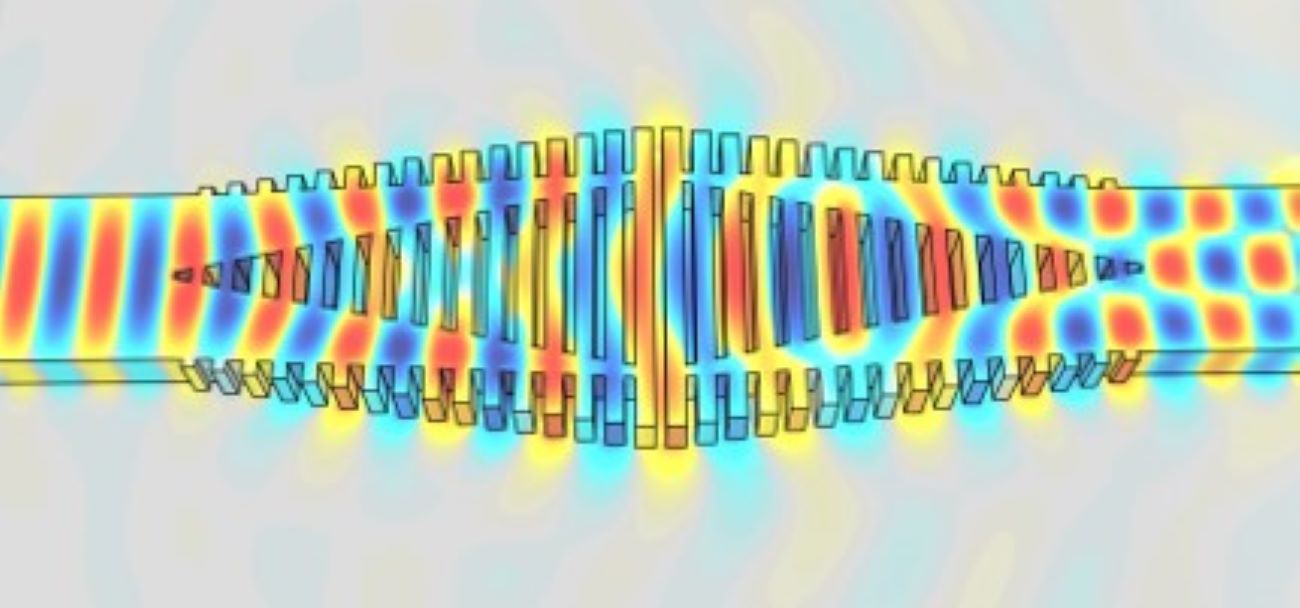
- Stage of development
-
Validated prototype
- Intellectual property
-
Priority patent application
- Intended collaboration
-
Licensing and/or co-development
- Contact
-
Eva GabaldónVice-presidency for Innovation and Transfereva.gabaldon@csic.escomercializacion@csic.es
- Reference
-
CSIC/EG/130
Additional information
#Electronics
#Chips / Circuits / Micro & nanoelectronics
Modal converter integrated in waveguides
New modal conversion architecture comprising two Y-junctions facing each other, with a subwavelength metamaterial structure in between them.
- Market need
-
Silicon photonics has become a pivotal technology for telecommunications and data communication, extending its applicability to a range of high-impact emerging fields, including 5G mobile communications, biosensors, quantum computing, and artificial intelligence. The inherent technical complexity of these applications demands a considerable number of devices on each chip. Mode converters are fundamental components in communication and sensing applications, as they facilitate the transformation of the input signal's modal distribution for subsequent multiplexing or interaction with other chip components. However, these mode converters often exhibit high losses and limited bandwidth.
- Proposed solution
-
A novel modal conversion architecture comprises two Y-junctions in back-to-back configuration, with a subwavelength grating (SWG) metamaterial structure inserted between them. This design facilitates precise control over the output modal profile of the device. Specifically, the geometric parameters of the Y-junctions and the topology of the SWG region significantly influence the ratio of achievable modal conversion. In all configurations, the architecture exhibits a broad operational bandwidth with low losses and high extinction ratios, making it especially suitable for integrated photonic circuits (PICs) used in communications and sensing applications.
- Competitive advantages
-
- High bandwidth is achieved in all configurations.
- High extinction ratios are achieved in all configurations.